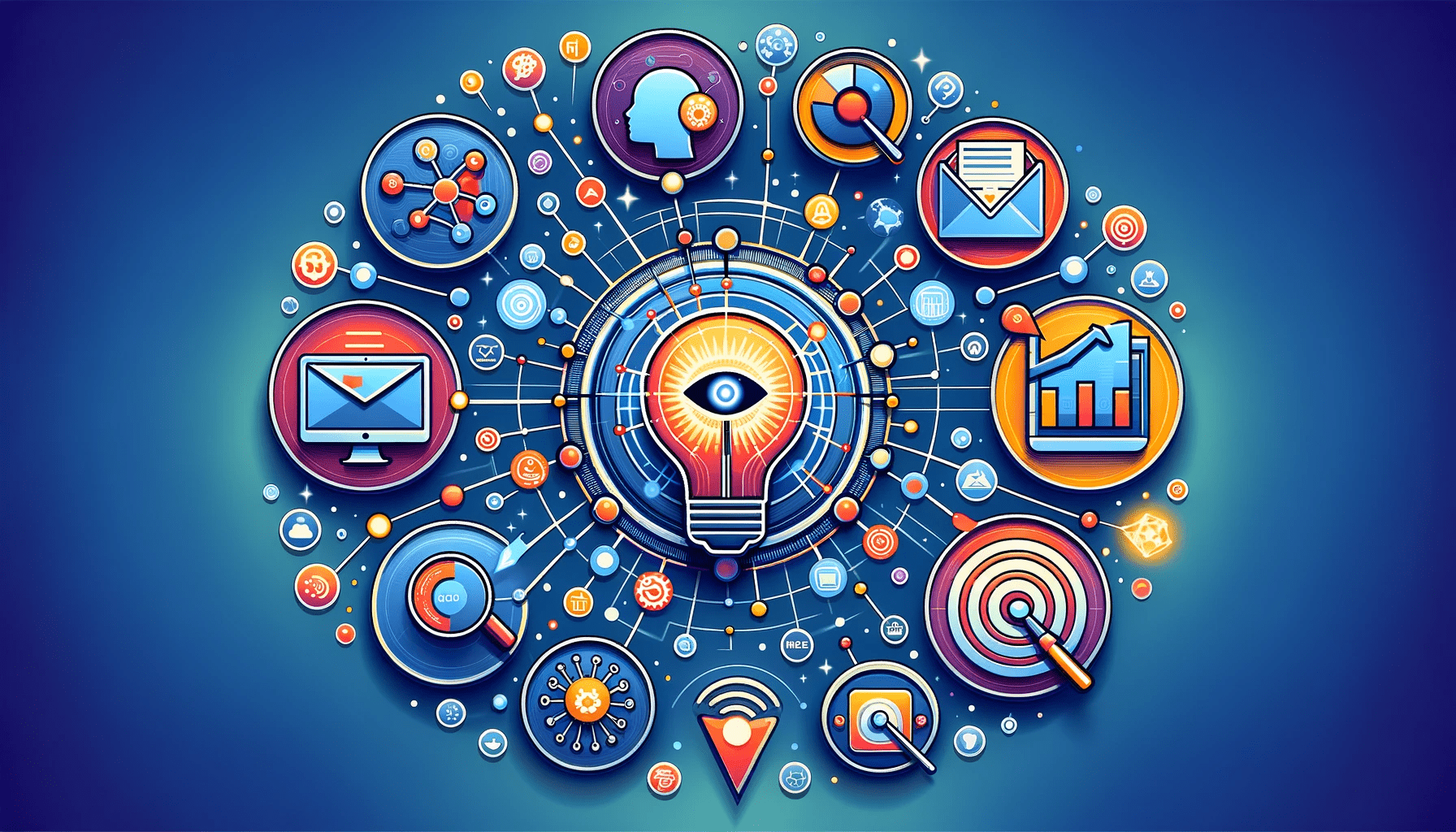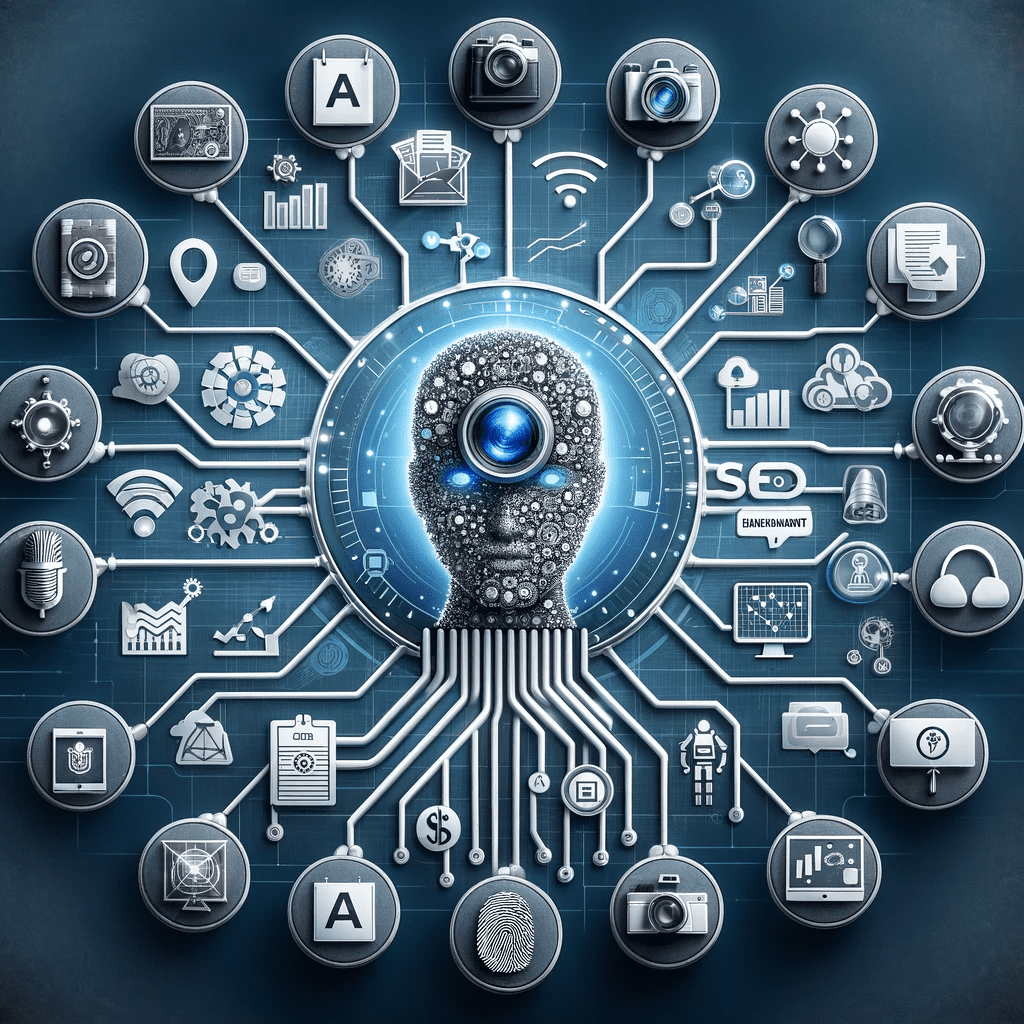Contents
Are you also one of those individuals who thought that AI generated content is not worth it because Google doesn’t rank such content? If yes, you are wrong my friend.
According to the Google Search Central, Google doesn’t have any issue with the AI generated content until it follows its E-A-T guidelines and isn’t employed solely for fabricating content to manipulate search rankings, which violates our spam policies.
In today’s dynamic digital marketing landscape, various branches of artificial intelligence are reshaping corporate and online environments. Among these, Generative Artificial Intelligence (AI) emerges as a potent tool revolutionizing content creation. By leveraging sophisticated algorithms, Generative AI enables marketers to produce high-quality content efficiently, freeing up time for more critical tasks. Moreover, it facilitates a deeper understanding of audience preferences through comprehensive data analysis.
Wondering what exactly the Generative AI is?
Without any further ado, let’s explore…
Understanding Generative AI
Essentially, it’s a type of Artificial Intelligence that can
- Create Highly Personalized And Engaging Content,
- Automate Routine Tasks, and
- Derive Actionable Insights From Vast Datasets.
All by learning from existing data. This means it can make stuff that seems like it was made by humans, but it’s actually generated by a computer program.
But, it’s also important to make sure the content it creates is fair and doesn’t spread fake news. By using Generative AI responsibly, marketers can come up with cool new ideas and do well in the digital world.
The Core Technologies Behind Generative AI
To grasp the inner workings of Generative AI in digital marketing, it’s essential to explore its mechanisms and capabilities. At its core, Generative AI relies on several pivotal technologies:
- Machine Learning: Serving as the core engine of Generative AI in digital marketing, machine learning algorithms employ techniques such as supervised, unsupervised, and reinforcement learning to process vast datasets and extract patterns and trends. Through optimization algorithms like gradient descent, the AI comprehends audience preferences, facilitating the replication of successful content creation strategies effectively.
- Natural Language Processing (NLP): In digital marketing, NLP algorithms such as recurrent neural networks (RNNs) and transformers play a pivotal role in semantic analysis, syntactic parsing, and sentiment analysis. By tokenizing, embedding, and decoding textual data, NLP enables the AI to generate coherent and engaging content that resonates with audiences, thus enhancing brand messaging and engagement.
- Neural Networks: This is the next technology that serves as the foundational architecture of Generative AI in digital marketing, neural networks consist of interconnected layers of artificial neurons. Utilizing activation functions, backpropagation algorithms, and weight optimization techniques, neural networks learn from data to capture complex patterns and relationships. By leveraging convolutional neural networks (CNNs) for image processing and recurrent neural networks (RNNs) for sequential data, Generative AI analyzes consumer behavior and preferences, empowering marketers to tailor their strategies for maximum impact.
By integrating these core technologies, Generative AI empowers digital marketers to produce a diverse array of content that attracts potential audiences.
Comprehensive Guide to Generative AI Applications in Marketing

Generative AI is revolutionizing marketing strategies across various fronts by empowering marketers with innovative tools and capabilities. Here’s how it’s making waves:
- Innovative Content Creation: Generative AI enhances creativity and efficiency in creating textual, image, and video content. It empowers marketers to produce diverse and engaging materials that resonate with their target audiences, allowing them to stay ahead in today’s competitive landscape.
- Data-Driven Insights Extraction: Moving further, marketers leverage Generative AI for:
- Market Research
- Consumer Behavior Analysis, And
- Competitive Analysis
By analyzing vast datasets, Generative AI helps uncover valuable insights that inform strategic decision-making, providing marketers with a deeper understanding of their audience and market trends.
- Information Summarization for Strategic Clarity: Generative AI streamlines the process of summarizing reports, presentations, and strategic documents. It condenses large amounts of information into concise and actionable summaries, facilitating better decision-making and enabling marketers to focus on key insights.
- Message Refinement for Impactful Communication: Generative AI also aids in tailoring marketing messages to resonate with diverse audiences. By analyzing consumer preferences and behavior, it helps marketers refine their messaging for maximum impact and engagement, ensuring that their communications are relevant and compelling.
- Advanced Data Classification: Moreover, this amazing subset of AI enables marketers to segment audiences for targeted marketing campaigns. By categorizing consumers based on their interests, demographics, and behaviors, it allows for more personalized and effective marketing strategies, helping marketers reach the right audience with the right message at the right time.
- Automated Question Answering: Generative AI is also used to enhance customer service and engagement through conversational AI. By automating responses to common queries, it improves response times and enhances the overall customer experience, ensuring that customers receive timely and accurate assistance whenever they need it.
In essence, Generative AI empowers marketers with innovative tools and capabilities to drive success in the ever-evolving digital landscape. From content creation to audience segmentation and customer engagement, its applications are vast and transformative, revolutionizing the way marketers connect with their audiences and achieve their business objectives.
Exploring Real-World Use Cases of Generative AI in Marketing

Generative AI isn’t just a theoretical concept; it’s actively shaping the landscape of marketing through real-world applications. Here are some compelling examples:
Content Generation: This technology revolutionizes content creation across various platforms. From AI-driven blog posts engaging readers with relevant insights to social media and advertising copy resonating with target audiences, Generative AI empowers marketers to produce high-quality content efficiently.
According to the CMO Survey of Fall 2023, a significant 64.7% of Chief Marketing Officers expressed their intention to leverage generative AI for crafting blog posts, while a substantial 62.2% indicated plans to apply it in developing various forms of website content.
Visual and Video Production: When it comes to visual and video content, Generative AI also stands out here. Crafting captivating visuals for social media or engaging video content for marketing campaigns, this technology streamlines the creative process, delivering compelling visual experiences.
SEO Enhancement: Generative AI proves valuable in enhancing SEO efforts. By analyzing data and identifying keywords, it optimizes content for search engines, improving relevancy and user engagement, ultimately driving more traffic.
Market Segmentation and Personalization: Leveraging Generative AI, marketers better understand their audience, delivering personalized messages and campaigns. By segmenting audiences based on interests, demographics, and behaviors, this technology tailors strategies to individual preferences, boosting engagement and conversion rates.
Customer Support: Generative AI transforms customer support through AI chatbots. Providing 24/7 assistance, chatbots answer queries, resolve issues, and offer personalized recommendations, enhancing the customer experience and satisfaction.
Navigating Cookieless Marketing: With the demise of third-party cookies, Generative AI helps navigate audience targeting and ad personalization challenges. By analyzing data and identifying patterns, it develops strategies compliant with privacy regulations, delivering relevant advertising experiences.
Essential Generative AI Tools for Marketers
In the dynamic world of marketing, having the right tools can make all the difference. Here are some essential Generative AI tools that empower marketers to create engaging content across various formats:
1. Text Generation Tools
- ChatGPT Plus: This tool leverages advanced natural language processing (NLP) techniques to generate human-like text for various marketing purposes, from blog posts to social media captions.
- Jasper AI: Jasper AI is another powerful tool for text generation, capable of creating engaging content tailored to specific audiences and marketing objectives.
- Wordtune: Wordtune helps marketers refine their written content by offering suggestions for improvements in tone, clarity, and style, enhancing the overall quality and impact of their messaging.
2. Image Creation and Editing
- DALL-E 2: Developed by OpenAI, DALL-E 2 is a state-of-the-art image generation model capable of creating unique and realistic images based on textual descriptions, providing marketers with endless possibilities for visual content creation.
- Midjourney: Midjourney is a versatile image editing tool that utilizes Generative AI to enhance and manipulate images, allowing marketers to customize visuals for their campaigns with ease.
- Adobe Firefly: Adobe Firefly is an innovative tool that combines Generative AI with Adobe’s powerful editing capabilities, enabling marketers to create stunning visual content for their marketing initiatives.
3. Video Production and Animation
- Runway: Runway is a cutting-edge platform that empowers marketers to create dynamic videos and animations using Generative AI techniques. From product demos to explainer videos, Runway offers a range of tools to bring marketing concepts to life.
- Synthesia: Synthesia specializes in AI-driven video production, allowing marketers to generate personalized video content at scale. With its intuitive interface and powerful features, Synthesia makes it easy to create engaging videos for various marketing channels.
These essential Generative AI tools provide marketers with the capabilities to enhance their content creation processes, streamline workflows, and deliver impactful marketing campaigns across different mediums. As technology continues to advance, the possibilities for leveraging Generative AI in marketing will only continue to grow.
Unlocking the Power of Generative AI with RedBlink Technologies
At RedBlink Technologies, we’re spearheading the revolution in generative AI, empowering businesses in the digital era. Generative AI isn’t just a vision of the future—it’s a transformative force for marketers. Leveraging machine learning, NLP, and neural networks, our solutions craft compelling content and extract valuable insights.
From content creation to automated analysis, our suite of tools such as ChatGPT Plus and DALL-E 2 elevate marketing strategies. Join us at RedBlink and shape the future of marketing with generative AI. Book a consultation today to explore the possibilities!

Director of Engineering | CTO | Software Developer
As a passionate technologist and seasoned software developer, I specialize in creating innovative solutions at the intersection of AI and software engineering. With a keen interest in leveraging the latest technologies to solve real-world problems, my work spans developing advanced AI models to designing scalable software architectures. Beyond coding, I contribute to tech blogs, sharing insights on AI trends, software best practices, and the future of technology. My mission is to empower organizations and individuals through technology, driving forward the boundaries of what’s possible
